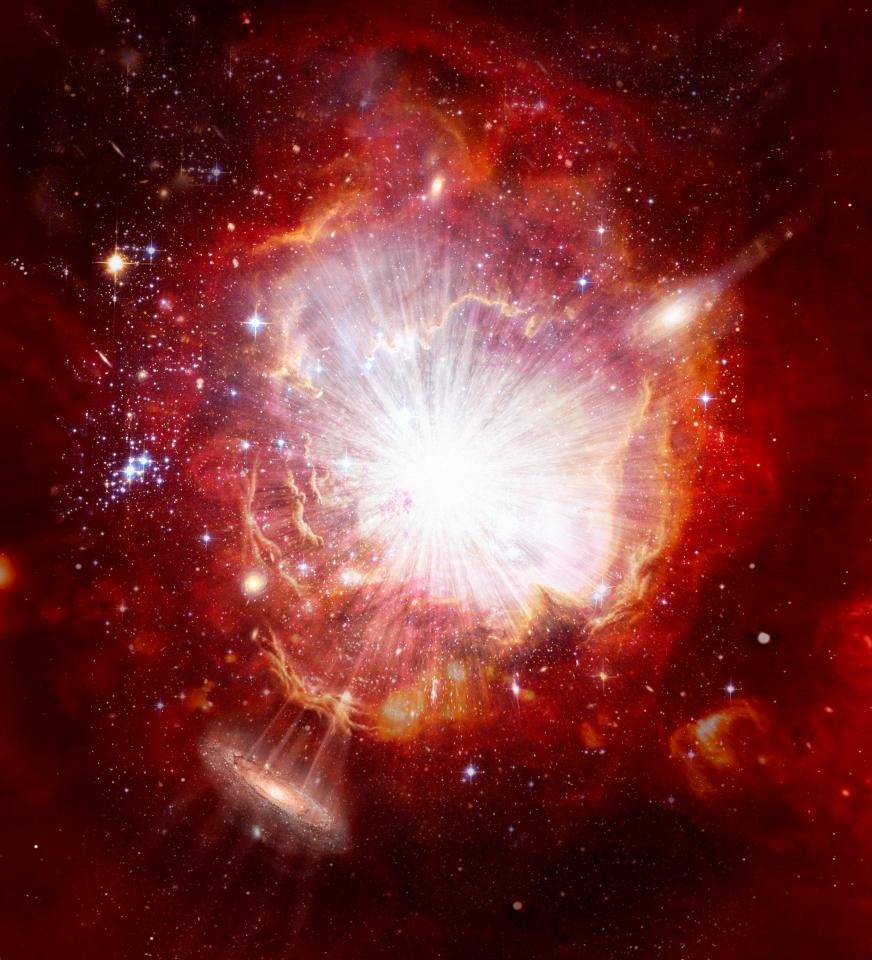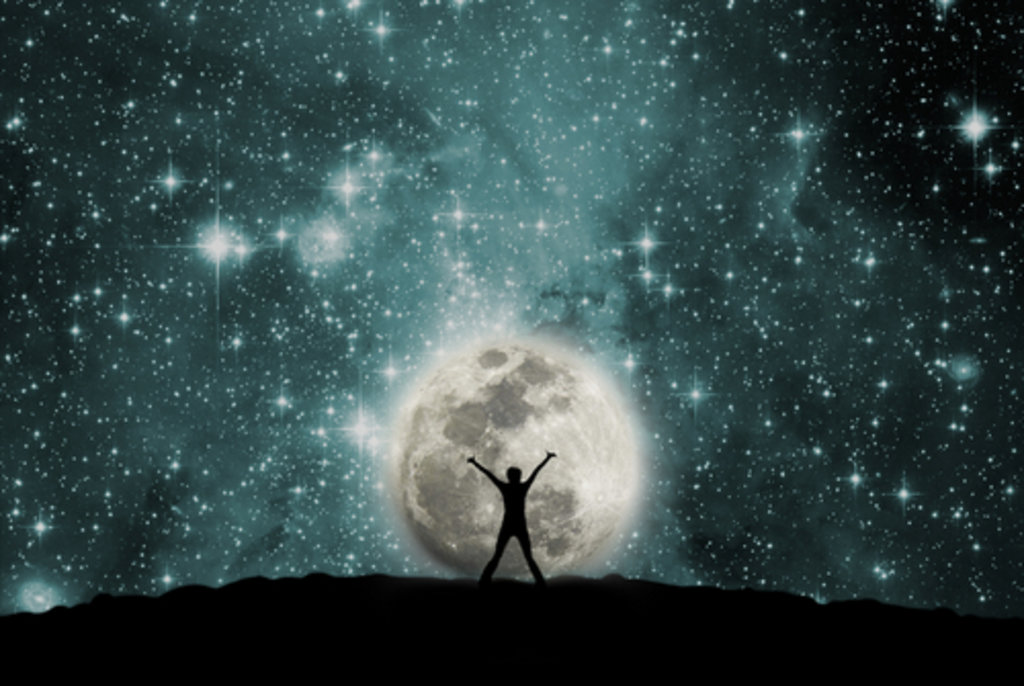Every week now it seems, astronomers are making a mind-blowing discovery or observation. Supermassive black holes at the center of galaxies; strange stars and galaxies flickering on just after the “Dark Age” of the universe following the Big Bang; and unseen “dark energy” propelling the universe’s expansion. This, astronomer’s say, is the “golden age of cosmology.”
There is at least one unexplained phenomenon that has implications for how a psychological revolution may happen. Astrophysicist Brian Greene, the author of “The Elegant Universe,” describes a phenomenon that defies the laws of space-time: When one distinct object is touched, it instantaneously affects another distant object. This process is not only faster than the speed of light; it transcends space and time.
Scientists have given this phenomenon the misnomer “entanglement,” which is an odd way of saying that it “makes things that appear to be distinct, part of the same whole.” If that principle applies to material objects in the known universe, how does it apply to the illusorily separate consciousnesses of individuals living in the global society?
“We may naively think things are distinct,” Greene says. That has a nice, New Age ring to it, but the implications are far more serious.
 As humans, our strong tendency, a byproduct of the evolution of ‘higher thought,’ is to separate, and see ourselves, and everything else, as separate. Therefore “entanglement” actually applies to us. We are entangled in our own self-made ideas and projections of reality. Science mitigates against this tendency of thought, but as a product of thought as well, science still separates and reduces.
As humans, our strong tendency, a byproduct of the evolution of ‘higher thought,’ is to separate, and see ourselves, and everything else, as separate. Therefore “entanglement” actually applies to us. We are entangled in our own self-made ideas and projections of reality. Science mitigates against this tendency of thought, but as a product of thought as well, science still separates and reduces.
The question, I feel, is not, what is our place in the universe, but what is consciousness? We can discover its basic principles and underlying premises, and thereby gain insight into how we got came to this ecological, spiritual and political impasse. In doing so, we come upon another order of consciousness.
Of course the common view is that the universe is just random, meaningless chaos, and the human brain and consciousness are simply chance developments. That’s getting harder and harder for scientists to maintain. Besides, it’s philosophically facile, and externalizes all the interesting questions.
We study the stars and are awed by the universe’s continually surprising elegance, but assume ‘human nature’ and the increasingly disordered consciousness of man are givens, searching the heavens like medieval astrologers for our place in the universe.
Greene says that in terms of cosmology, “explanations are getting simpler, more elegant” even as the phenomena being observed and discovered are getting stranger and stranger. Scientists aren’t arriving at final answers, but they are beginning to understand how one process relates to another.
There are still huge and possibly unanswerable questions, like what started the Big Bang, and what was there before it occurred? And there are questions science cannot begin to answer, and for which there is no answer except holding the question, such as what is God and what is enlightenment?
Some who see the contradiction between man and nature, and feel the disastrous direction humankind is headed, believe man was a mistake of evolution. But that’s too easy.
Evolution may generate dead ends, but it is self-correcting. Besides, the evolution of a creature such as Homo sapiens begs the question: How can a sentient species, which evolved along with all other life, have the power to destroy virtually all life?
Since one species, possessing what it calls consciousness, can destroy most life on its planet, then logically that same species has tremendous potential for true consciousness.
Apparently the evolution and growing domination of symbolic thought, including and especially through science, is a stage of consciousness that generates its own crisis, leading to a “phase shift” of another order of consciousness altogether. In short, we are an experiment in consciousness, and experiments can fail.
Our present consciousness makes us increasingly hubristic technological creatures; awakened consciousness makes us human beings and members of the brotherhood and sisterhood of intelligent species in the universe.
Consciousness does not evolve, in the sense of gradually improve. But serious human beings can bring about a revolution in consciousness within themselves and human consciousness as a whole.
Indeed, is there is any choice? It’s either the death of humanity by merging with our machines, as capitalistic technologists are actively promoting, or painfully birthing a new order of consciousness, allowing humankind to live in imperfect harmony with our planet and the cosmos.
Martin LeFevre
No comments:
Post a Comment